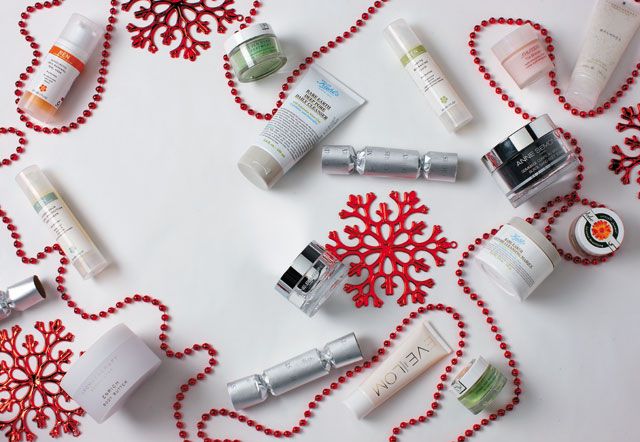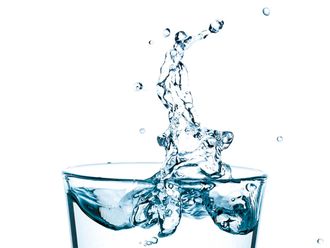Just like your wardrobe, skin care is a seasonal consideration. Low temperatures, low humidity and strong, harsh winds exhaust skin of its natural lipid layer which keeps it from drying out. Amita Patel from Dermalogica Middle East offers advice on how to tend to winter skin.
Combination-Normal Skin
In summer, normal skin may turn slightly oily while in winter, normal skin tends to become dry and in some cases, more sensitive. This is because cold air closes pores. As a result, the body's natural oils are not secreted. Thus, the skin is deprived of its natural oils and becomes more vulnerable to environmental factors. The first immediate measure to control external aggression is to lavish it with super-rich moisturisers. For day and night-time, keep your skin well moisturised. Hydration should not only be achieved exclusively through creams though. Drink plenty of water and remember: just because it's winter, it's not OK to skip your regular eight glasses a day.
Oily skin
For people with oily skin, winter is often a ‘good time', because the cold climate causes the skin to secrete less sebum. Adapt your skin care regime to the changes your skin exhibits. If you have ‘normal' skin in winter (oily skin types), use a skin care system suitable for normal skin.
Dry Skin
People with dry skin tend to enjoy a reprieve in summer when pores open and secrete more oil. If you have normal skin in summer, your skin will take a turn for the drier in winter. Again: change your skin care system accordingly.
Dry Lips
Dry, cracked lips are a classic symptom of dehydration and are a typical problem in winter. Protect your lips by using an oil-based lubricating cream or lip balm containing petrolatum or beeswax. Before going out into cold, dry weather, apply lip cream or balm that contains sunscreen. Re-apply often while outdoors. Avoid licking your lips. Saliva evaporates quickly, leaving your lips even drier. If you tend to lick your lips often, avoid flavoured lip balm.
Ageing skin
The older you are, the less adept your skin is at detecting changes in temperature. As we get older, our skin tends to degrade and lose elasticity as sensory cells become either less sensitive to temperatures, or die off all together. Our skin is in a continuous state of regeneration, but at a certain age this slow-down makes it stiff, and prone to breakage. Invest in anti-ageing creams.
Sun-damaged skin
The sun may be cooler in winter, but the sun does not necessarily have to be hot for it to be damaging. Clouds only block 20 per cent of the harmful rays, and the other 80 per cent can still cause damage. You must still apply sunscreen daily. Exfoliate and moisturise to maintain your skin's moisture after a day in the sun.
SensitiSed Skin
Over-exfoliating, harsh peels, laser treatments and so on exacerbate dryness. Use mild gel or a lotion-based moisturiser, especially if you spend a lot of time outdoors. If you are using retinol treatments, make sure you use creams with high SPFs.
Treating Skin Ailments
Certain skin conditions are aggravated during winter. Be committed to treating them on a daily basis. Eczema: avoid wearing wool or heavy synthetic fabrics as these fabrics will aggravate irritation.Psoriasis: apply moisturisers and use warm (not hot) water when bathing.
Pigmentation
Hyperpigmentaion usually develops slowly. Even when treated successfully, melasma often recurs, especially when the skin is exposed to sunlight. It's imperative to wear a broad-spectrum (UVA plus UVB) sunscreen daily; avoid the sun whenever possible and wear protective gear. Opt for a SPF sunscreen that contains either titanium dioxide or zinc oxide.
Acne-prone skin
Using acne-fighting products such as benzoyl peroxide adds to the uncomfortable peeling and flaking of dry winter skin. So make sure that your cleanser does not contain benzoyl peroxide or salicylic acid, as these can make the dryness worse. Instead, use a gentle cleanser. Keep your skin moisturised, even if you suffer from acne. But don't use a greasy moisturiser; choose lighter gel or lotion formulations. Make sure they are non-comedogenic so your pores are not blocked.
Chlorine damage
If you enjoy a bracing swim in the cold weather, it may be great for your body but not so great on your skin as the chlorine (in the pool water) dries your skin even more. After a post-swim shower, lavish your body with a rich moisturising lotion or cream.
Focus on your face
To keep your skin supple during winter, moisturising is not the last stop. Regular professional treatments will improve your skin's texture and boost hydration levels.
Good skincare is about balance - so even as you enjoy the weather, keep in mind that you need to offset winter's effects on your skin by following a disciplined skincare programme on a daily basis.
Amita Patel has more than ten years' experience in the industry as a skin care therapist, day spa operations manager and industry consultant.













